My favorite annual publication is the Fraser Institute’s Economic Freedom of the World, which measures the amount of economic liberty that exists in 159 nations. The rankings are based on five equally weighted categories, though I’ve always viewed “Legal System and Property Rights” as being the most important because even low taxes and light regulation won’t produce much growth if investors and entrepreneurs have no faith in the rule of law or the quality of governance.
This is why the annual International Property Rights Index is another one of my favorite publications. It provides a detailed look at why the right to own, utilize, and trade property is essential to a free society.
Property rights are accepted as a linchpin for human beings’ liberty, acting as a catalyst for economic and societal growth , and as a defense against authoritarian temptations…Property is the basis of the freedom to contract, which is simply liberty in action. Without freedom to exchange, a third party, generally the government, intervenes through the political-bureaucratic ruling class. Freedom is more than the right to own property or the right to make transactions, to exchange, to buy and sell. Once citizens lose the right to own, they lose the ability to control their own lives… This Index was developed to serve as a barometer of the state of property rights in all countries of the world.
Here’s the methodology of the Index. There are three main categories, each of which is comprised of several indices.
Now let’s get to the rankings.
As you might expect, Nordic nations and Anglosphere jurisdictions dominate, along with a smattering of other European countries.
…the top 15 countries for this year’s IPRI edition. Finland leads the 2018 IPRI (8.6924)… New Zealand ranks second (8.6322)… Next come Switzerland (8.6183), Norway (8.4504), Singapore (8.4049), Sweden (8.3970), Australia (8.3295), Netherlands (8.3252), Luxembourg (8.2978), Canada (8.2947), Japan (8.2315), Denmark (8.1640), United Kingdom (8.1413), United States of America (8.1243), and Austria (8.0050).
Congratulations to Finland, New Zealand, and Switzerland for winning the gold, silver, and bronze medals.
If you peruse the full rankings below, you’ll see that the United States is #14 (the same as last year).
Haiti is in last place, below even Venezuela.
It’s also worth noting that Chile is the highest-ranked Latin American nation.
Now let’s look at the nations with the biggest movement in the right direction and wrong direction. It’s easy to make a big jump for nations that are ranked very low, so Cyprus (which is now near the top of the 3rd quintile) probably deserves the most applause.
This year, five countries show the highest absolute improvement in their IPRI score: Azerbaijan (1.09), Ukraine (0.86), Russia (0.85), Moldova (0.82), and Cyprus (0.79); while the ones with highest decreases in their 2018 IPRI scores were South Africa (-0.65), Ethiopia (-0.3), Liberia (-0.27), Uganda (-0.25), and Uruguay (-0.22).
And South Africa’s decline is very tragic since it historically has been one of the best African nations.
By the way, if you want to know why property rights are so important, this chart is all the evidence you need.
And we’ll close today’s column with a bit of good news.
We don’t have decades of data, but the numbers that do exist show continuous improvement.
And since we also have evidence that overall global economic liberty is increasing, there are reasons for optimism.
Reprinted from the author’s blog and sourced from FEE.org
Daniel J. Mitchell is a Washington-based economist who specializes in fiscal policy, particularly tax reform, international tax competition, and the economic burden of government spending. He also serves on the editorial board of the Cayman Financial Review.

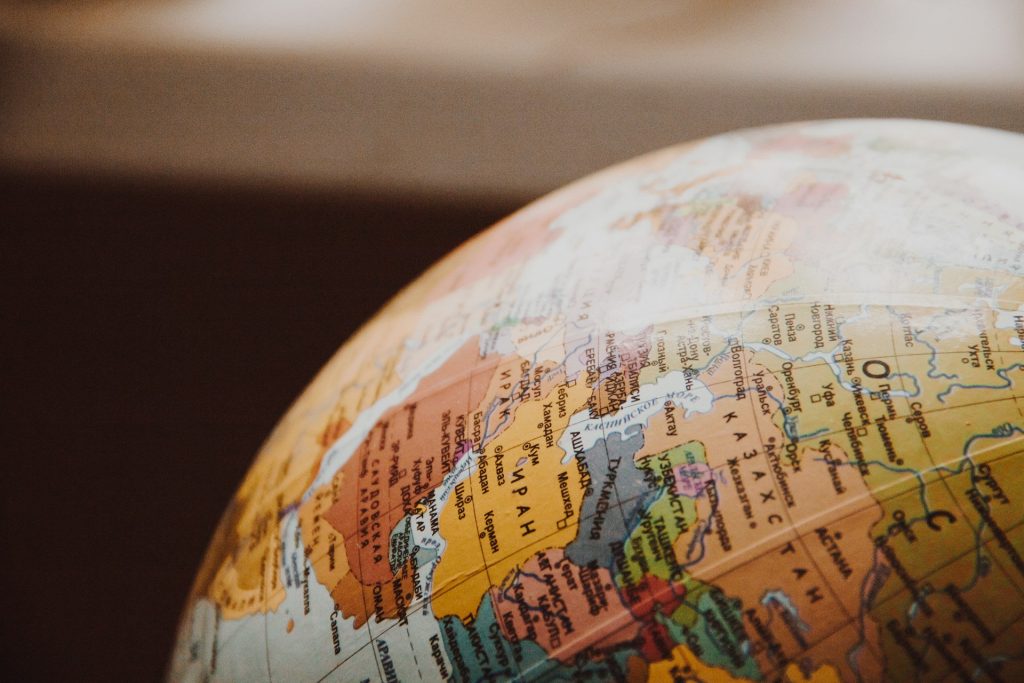
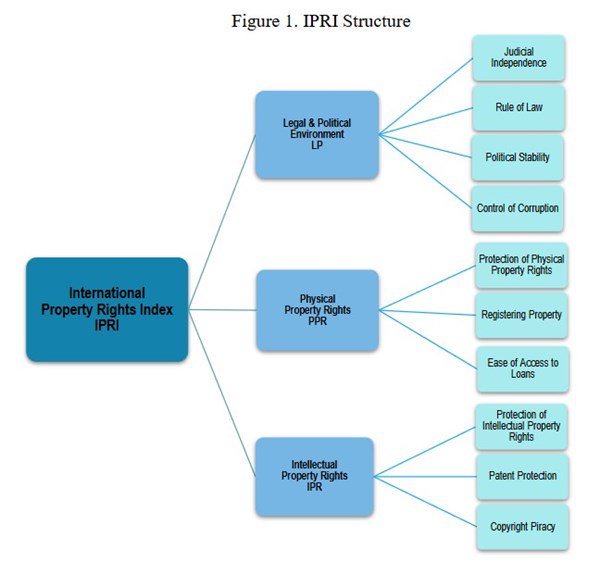
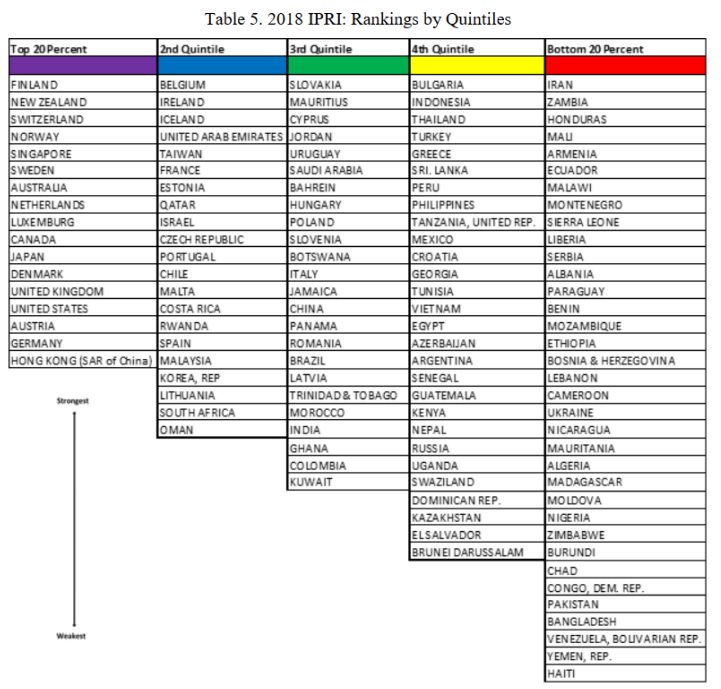
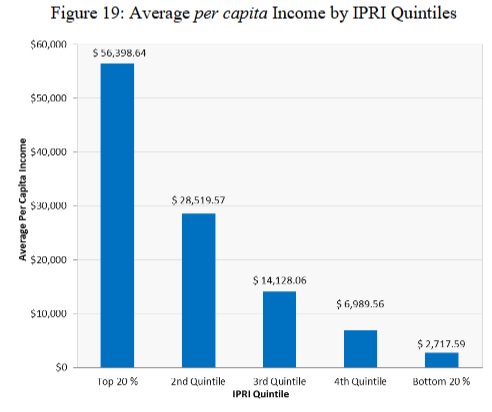
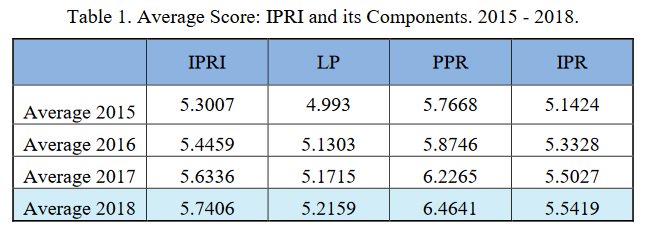
“If any man’s money can be taken by a so-called government, without his own personal consent, all his other rights are taken with it; for with his money the government can, and will, hire soldiers to stand over him, compel him to submit to its arbitrary will, and kill him if he resists.” — Lysander Spooner
Another BS publication from an ” Institution”. I lived in Switzerland, Mexico, Costa Rica, United States, Ukraine and Russia. If you do not pay your taxes in the US – you lose your home, condo, land, homestead farm etc. . There are Zero taxes on your home, flat, land etc. in Russia – or sales tax or the 30 other taxes the US has. Obviously , the ” Institution” doesn’t relate to the countries that tax you to death and – After.
No doubt. The article makes you want to believe that someone actually cares about your property ownership when the only person that cares is the tax-collector.
LOL today I got an e mail from my brother in Chicago – he lives in the same house Gramps built in the late 30s – they have re- assessed him another 120,000bucks – Why ? because Gramps built on the far No. side away from the Loop { downtown} and all the cops and firemen live there because its all white and – if you work in Chicago – you have to live in Chicago. Me – I live in Ru. No F..n taxes – None – Zero – Zip
I’ve always wondered why property contracts are not valid in the US. I know that in many other countries when you enter an agreement to purchase a house, for instance, you are bound by contract law to complete the purchase. In California such a contract means absolutely nothing. You can put your signature on the bottom line and during a three month, lesser or greater, escrow period, you can suddenly decide that you have changed your mind and the sellers has no recourse in law, even though they have been detrimentally prejudiced, as their property has been off the market for so long. So much for contract law. It doesn’t exist in the real estate market in the US.
There is no true law left in the United States (at least not for the criminals that run it). The US is a communist country. Check out the ten elements of communism and with an open mind you will see that they are all in affect.
What is communism you might ask? Communism is satanism in disquise. At first glance you will not see much wrong with it, but with time you will begin to see it as both an economic as well as a spiritual war.
Under communism you must pay an annual rent on your property. Pay the extortion/ rent/ property taxes or they will steal it all. Under communism you are brainwashed into believing that you are free. That is an outright lie. Under communism you are led to believe that you have rights protected by government which was created under an unbreakable document called the constitution. More lies and deceipt. With time and study you will come to realize that you have no government protecting you, you have absolutely no rights, and that this thing called government is actually run by organized crime. It is such a monstrous criminal conspiracy that you will find it difficult to believe that it could actually exist.
Ignorance in general and ignorance of the law especially is what allows these criminals to get away with it. Lawyers are a major part of the problem. The other part is that of the people in their failure/ refusal to learn that they have enemies.
It is war! It is a war carried out by religious, greedy zealots who have absolutely no empathy for goyim. I suggest everyone educate yourself. Seek the truth. I believe it will set you free.
I’ve always considered Communism as an economic system rather than a political one, although there are overlaps. After all there are numerous nations with despotic governments, such as Saudi Arabia for instance which treat its people just as the Soviets treated theirs, but which is capitalist. So it isn’t the political nature that differentiates Communism from Capitalism, it is the nature of property ownership and denial of market forces.